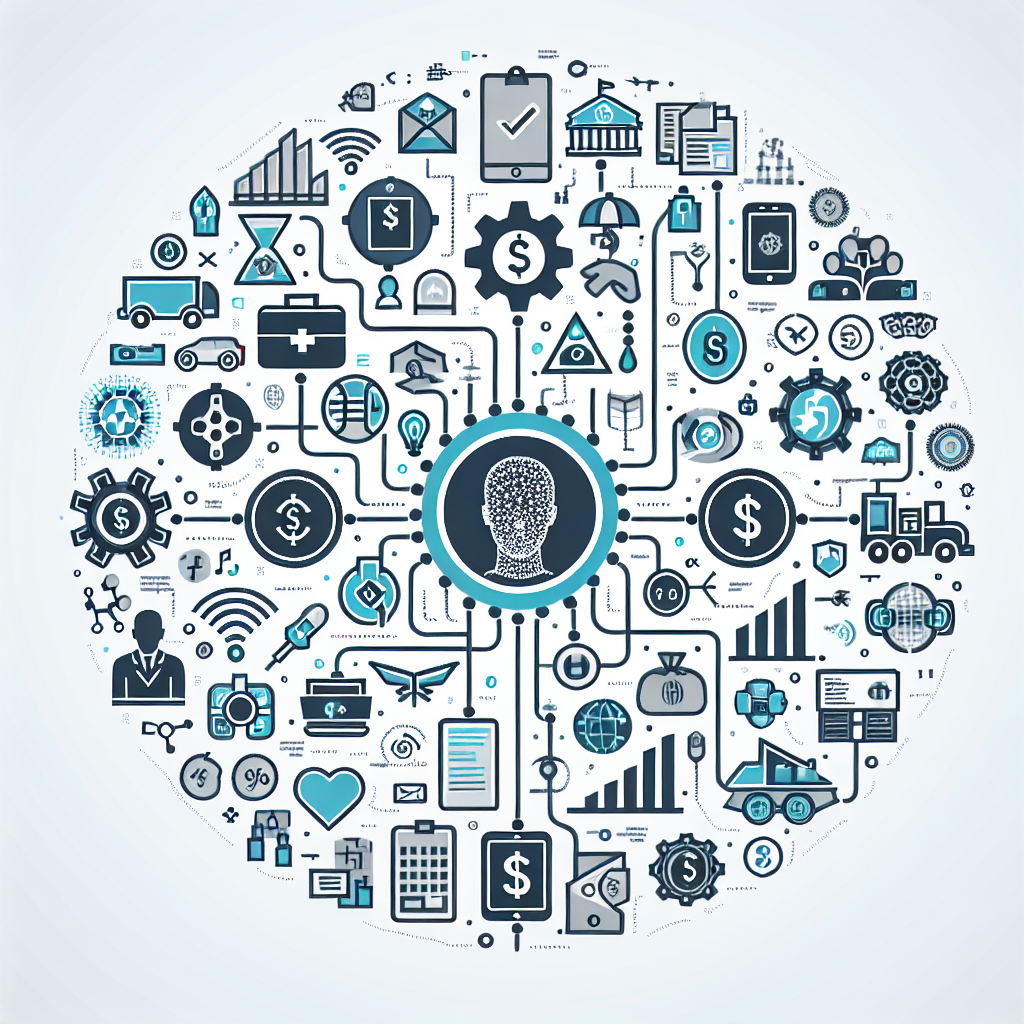Artificial General Intelligence (AGI) is a term used to describe a hypothetical machine that possesses the ability to understand, learn, and apply knowledge in a manner similar to human intelligence. While we are not quite at the point where AGI exists, the development of Artificial Intelligence (AI) is rapidly advancing, and many experts believe that AGI could become a reality in the near future. The implications of AGI on industries and the economy are vast and far-reaching, with both positive and negative consequences. In this article, we will explore the potential impacts of AGI on various industries and the economy as a whole.
Implications of AGI on Industries
1. Healthcare: One of the industries that could benefit the most from AGI is healthcare. AGI has the potential to revolutionize the way medical diagnoses are made, treatment plans are developed, and patient care is delivered. With the ability to process vast amounts of data and identify patterns that human doctors might miss, AGI could lead to more accurate and personalized healthcare solutions.
2. Finance: The financial industry is another sector that stands to benefit from the development of AGI. AGI could be used to analyze market trends, predict stock prices, and make investment decisions with a level of accuracy that human traders could never achieve. This could lead to more efficient and profitable financial markets.
3. Manufacturing: AGI has the potential to transform the manufacturing industry by improving automation processes and increasing productivity. With the ability to learn and adapt to changing conditions, AGI-powered robots could work more efficiently and effectively than their human counterparts, leading to lower production costs and higher-quality products.
4. Transportation: The transportation industry is already beginning to see the impact of AI, with the development of self-driving cars and trucks. AGI could take this a step further by enabling vehicles to make complex decisions in real-time, leading to safer and more efficient transportation systems.
5. Retail: AGI has the potential to revolutionize the retail industry by personalizing the shopping experience for consumers. By analyzing customer data and preferences, AGI could recommend products and services that are tailored to individual needs, leading to increased sales and customer satisfaction.
Implications of AGI on the Economy
1. Job Displacement: One of the biggest concerns surrounding the development of AGI is the potential for job displacement. As machines become more capable of performing tasks that were once done by humans, many jobs could become obsolete. This could lead to widespread unemployment and economic instability.
2. Income Inequality: The rise of AGI could exacerbate income inequality, as those with the skills and resources to adapt to the new technology stand to benefit the most. This could further widen the gap between the wealthy and the poor, leading to social unrest and political instability.
3. Economic Growth: On the other hand, the development of AGI could lead to significant economic growth by increasing productivity, reducing costs, and driving innovation. This could lead to higher levels of prosperity and overall well-being for society as a whole.
4. Regulatory Challenges: The development of AGI raises a host of regulatory challenges, including issues related to data privacy, intellectual property rights, and ethical considerations. Governments will need to develop new policies and regulations to ensure that AGI is used in a responsible and ethical manner.
5. Global Competition: The race to develop AGI is likely to intensify global competition, with countries vying for dominance in this emerging technology. This could lead to geopolitical tensions and conflicts as nations seek to gain a competitive advantage in the AI arms race.
FAQs
Q: When will AGI become a reality?
A: It is difficult to predict when AGI will become a reality, as the development of artificial intelligence is a complex and rapidly evolving field. Some experts believe that AGI could be achieved within the next few decades, while others are more skeptical of this timeline.
Q: What are the ethical considerations surrounding AGI?
A: The development of AGI raises a host of ethical considerations, including issues related to data privacy, bias in algorithms, and the potential for AGI to surpass human intelligence. It is important for researchers, policymakers, and industry leaders to address these ethical concerns proactively to ensure that AGI is used in a responsible and ethical manner.
Q: Will AGI lead to job loss?
A: The development of AGI is likely to lead to job displacement in certain industries, as machines become more capable of performing tasks that were once done by humans. However, it is also possible that AGI could create new jobs and opportunities in other sectors, as the technology drives innovation and economic growth.
Q: How can we prepare for the impact of AGI on industries and the economy?
A: To prepare for the impact of AGI on industries and the economy, it is important for policymakers, businesses, and individuals to invest in education and training programs that equip people with the skills they need to adapt to the changing technological landscape. Additionally, governments will need to develop new policies and regulations to ensure that AGI is used in a responsible and ethical manner.
In conclusion, the development of AGI has the potential to revolutionize industries and the economy in ways that we have never seen before. While there are many potential benefits to be gained from AGI, there are also significant challenges and risks that must be addressed. It is important for stakeholders to work together to ensure that AGI is developed and deployed in a responsible and ethical manner, so that we can fully realize its potential to improve our lives and society as a whole.

